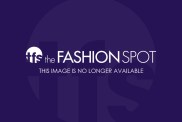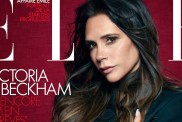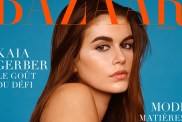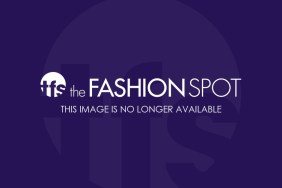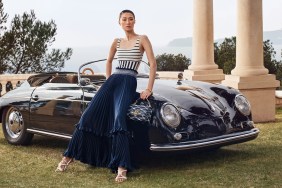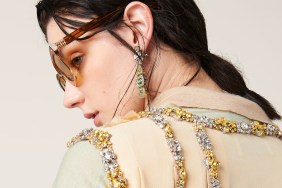Selfies had a dubious rep before Snapchat hit the scene — studies have shown there is a modest link between narcissism and selfie-posting among men and women (though the vague correlation is even smaller among women). However, Snapchat, as big companies are wont to do, has managed to actually politicize the (innocuous until proven guilty) much-loved art of posting pictures and videos of oneself.
In recent months, users have called out the social media channel for its whitewashing and blackface filters (made available in honor of Coachella and Bob Marley, respectively). “Millions of Snapchatters have enjoyed Bob Marley’s music, and we respect his life and achievements,” Snapchat said of the inappropriate filter. “[The lens] gives people a new way to share their appreciation for Bob Marley and his music.” There was no official word on the whitewashing. Apparently, the company thinks we’re taking the whole skin-altering issue too seriously.
In May, Snapchat’s geometric mask filter resembling the work of Russian artist Alexander Khokhlov elicited a social media outcry. That got the company’s attention. The brand swiftly removed the filter and issued the following statement: “We agree that this lens is similar other artists’ creations and we have removed it. We are sorry for this embarrassing mistake and we are taking action to make sure it won’t happen again.”
Yet happen again it has. Two makeup artists are now accusing the channel of intellectual property theft. According to the Ringer, masters of disguise Argenis Pinal (who boasts 128,000 Instagram followers) and Mykie (when you’ve got an Insta following 1.1 million strong, last names are strictly optional) were both blatantly swindled by the app.
Pinal, whose handiwork has graced red carpets and music videos, credits himself for Snapchat’s Joker-themed filter. “I came across it and I was like, ‘Um, this is exactly the same drawing I did of myself a couple months ago,” Pinal told the Ringer. “And it was weird, because I literally just reposted a picture of it a week ago on Instagram. Sort of a re-shout-out to it.”
Mykie, whose career has skyrocketed thanks to social media, “really [doesn’t] want to come across as bitter or ungrateful.” However, one of Snapchat’s most recent filters, a watercolor-tears-themed look, is such a clear appropriation of her work that she felt compelled to reach out to the brand. “Most recently their support team has not responded to my tweets [as well as tweets from others] wanting answers on this recurring issue,” said Mykie to the Ringer. “I also filed a report through the app with my particular case when the filter first appeared and their response was that they ‘Don’t believe that the filter infringes any copyright.’ That would ultimately be up to a judge to decide if the work had been altered enough to count as a new work.”
However, in the wake of the Ringer exposé, the brand was quick to save face with a not-so-filtered response: “The creative process sometimes involves inspiration, but it should never result in copying. We have already implemented additional layers of review for all designs. Copying other artists isn’t something we will tolerate, and we’re taking appropriate action internally with those involved.” The statement reads like an admission of guilt — and a not wholly apologetic one at that. Copywriting makeup looks isn’t really a thing yet (although there is precedent) so it’s likely Snapchat CEOs know they have little to fear.
This entire PR nightmare could have been easily avoided. We live in the age of collaborations and influencers, so why not give artists proper credit or at least consult them before using their ideas? Even better, why not hire those who have the creativity and know-how to keep your content fresh and, most importantly, original?

